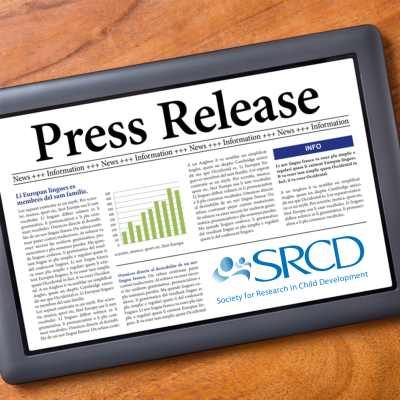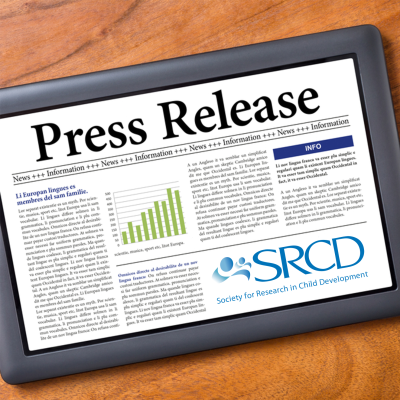Discrimination-Related Stress Affects Mental Health of Latino Teens, Particularly Those Born in the United States to Immigrant Parents
PRESS RELEASE / CHILD DEVELOPMENT: Embargoed for Release on February 11, 2015
Latinos are the largest and fastest-growing ethnic minority in the United States, comprising 15 percent of the total U.S. population, one third of whom are under age 18. Nearly half of all Latino adults say discrimination is part of their daily experience. In a new longitudinal study of foreign-born (first-generation immigrant) and U.S.-born (second-generation immigrant) Latino adolescents, researchers have found that the mental health of Latino adolescents improved over three years of adolescence. However, important differences emerged in how discrimination-related stress affected youth who were first- versus second-generation immigrants.
“Our results shed light on the immigrant paradox, where second-generation immigrants fare worse than first-generation immigrants in a number of areas, including mental health,” according to Selcuk R. Sirin, associate professor of psychology at New York University (NYU), who led the study. “Although there is no difference in the amount of discrimination-related stress between native- and foreign-born immigrants, the effect of that stress is more detrimental to native-born immigrants over time.”
The study was conducted by scientists at NYU and the College of Staten Island, City University of New York. It appears in the journal Child Development.
Researchers looked at 173 Latino teens from a range of socioeconomic backgrounds who attended New York City high schools with substantial proportions of immigrant students; since consent forms were in English, the youth who took part had to be proficient enough in English to understand the forms. The teens answered questions about discrimination-related stress, symptoms of anxiety and depression, and sleeping habits three times over three years between tenth and twelfth grades.
Overall, mental health improved for youth in both immigration groups, with symptoms of anxious depression (e.g., nervousness, fearfulness, agitation) and sleep problems diminishing over the three years of the study. However, some mental health symptoms, such as symptoms of withdrawn depression (e.g., feeling worthless, lonely), decreased from tenth to eleventh grades and then increased slightly again in twelfth grade.
Stress related to discrimination was significantly associated with increases in symptoms of anxiety and depression in second-generation Latino immigrant students, but not their first-generation counterparts. The authors posit that stress related to discrimination may affect youth born in the United States to immigrant parents more than foreign-born youth who immigrated to the United States because those youth are protected by a stronger attachment to their Latino heritage. A second theory is that discrimination becomes more salient to later generations.
“Overall, the pattern of increasing mental health over time demonstrates psychological strength and resiliency among Latino immigrants,” Sirin notes. “But people who work with these individuals should bear in mind the damaging effects of discrimination on mental health, particularly for those who were born in the United States. Being aware of the role of discrimination-related stress can help professionals be more sensitive, and thus more effective, in their efforts to help Latino youth flourish.”
Professionals should acquaint themselves with research on discrimination toward Latinos in the United States, Sirin suggests. They should also inquire about how their clients define and experience their cultural identity. Therapists shouldn’t be afraid to ask about experiences of discrimination and to tell clients when their reactions are valid and normal.
The study was funded by the Spencer Foundation and New York University.
###
Summarized from Child Development, Discrimination Related Stress Effects on the Development of Internalizing Symptoms Among Latino Adolescents by Sirin, SR (New York University), Rogers-Sirin, L (College of Staten Island, City University of New York), Cressen, J, Gupta, T, Ahmed, SF, and Novoa, AD (New York University). Copyright 2015 The Society for Research in Child Development, Inc. All rights reserved.


